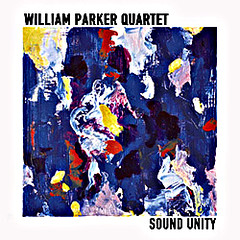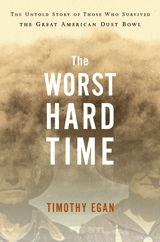Coda: 2005.
As a coda of sorts to Jay’s inspiring top ten movie recap for ’05, and just in time to accompany the first flowering of 2006 best-ofs, I’d like to offer my own lightweight remembrance of the year in music. I’m no good with lists—my tastes are artificial enough as it is, and the list-making just seems to exacerbate the tendency—but one new jazz album really stood out for me. So, for whatever it’s worth, here is:
The Good Professor’s Best New Jazz Album of 2005:
1. William Parker Quartet, Sound Unity
[Statisticians in the house will appreciate that the total pool from which this award stems is somewhere in the vicinity (statisticians love that term) of five.]
From the moment it arrived in the mail last summer, unannounced, a goodwill gift from the princely Stephen J. of Aum-Fi, this record has given me so much pleasure. In a year that featured three outstanding reissues, heralding no less a trinity than Bird, Monk, and Trane, this six-track disk from Messrs. Parker (bass), Drake (drums), Barnes (trumpet), and Brown (alto) stakes its claim for the here and now, while still paying respect to jazz progenitors.
Parker, bless him, writes full-on songs. Sometimes with lyrics (see “Raining on the Moon”), though (bless him) not here. Most of these tunes start out with a strong melodic statement made by the two horns together; the harmonies generated aren’t very far from the twinned lines of the classic Jazz Passengers of forty years ago. The solos that follow typically build on notions introduced by the theme. I guess this makes the album more “in” than “out,” but one of the side effects of an album this enjoyable is that those kinds of concerns couldn’t matter less.
This is a group—these artists have spent time together—I mean, the rhythm section has recorded their own album of duets—and their simpatico with one another is immediately apparent. Drake and Parker are in the pocket so deep they form their own event horizon. It’s also a recording of a group in front of an audience; all six tunes were recorded at two gigs from a Canadian jaunt in the summer of 2004. The fidelity, and separation, is beautiful, intimate—with only minimal audience sound, but the heightened sense of risk and event that only comes when playing live.
Modern jazz can come across as a deeply un-relevant music. Part of Parker’s strength as a leader (of the group, if not the NYC free jazz firmament) is how he combines a groundedness in the present with an awareness of and respect for what came before. The four songs recorded in Vancouver on a July 2 night are folk songs—Spiritual Unity begets Sound Unity—as simple in melody as they are deep with resonances. From Parker’s notes: “‘Wood Flute Song’ is written for the late trumpet player Don Cherry…. ‘Hawaii’ is a song written in honor of Frank Lowe”; while ‘Harlem’ and ‘Groove’ express a strong sense of place (Jamaica, in the latter case) with a beauty that speaks, to this listener, of human possibility and every jazz metaphor having to do with the balance between individuality and common cause.
The album isn’t without its missteps. The twenty minute title track—a stretched out high-wire act that doesn’t achieve the required tautness—was almost certainly a “you had to be there” moment. And as much as I love Hamid Drake, I’ve never been a fan of the drum solo. But these quibbles aside, were a Venusian to land on my stoop tomorrow insisting on hearing something that best represents all that jazz has to offer in the mid-oughts, I would not hesitate before spinning this.
And I'd send him here to buy it.
The Good Professor’s Best New Jazz Album of 2005:
1. William Parker Quartet, Sound Unity
[Statisticians in the house will appreciate that the total pool from which this award stems is somewhere in the vicinity (statisticians love that term) of five.]
From the moment it arrived in the mail last summer, unannounced, a goodwill gift from the princely Stephen J. of Aum-Fi, this record has given me so much pleasure. In a year that featured three outstanding reissues, heralding no less a trinity than Bird, Monk, and Trane, this six-track disk from Messrs. Parker (bass), Drake (drums), Barnes (trumpet), and Brown (alto) stakes its claim for the here and now, while still paying respect to jazz progenitors.
Parker, bless him, writes full-on songs. Sometimes with lyrics (see “Raining on the Moon”), though (bless him) not here. Most of these tunes start out with a strong melodic statement made by the two horns together; the harmonies generated aren’t very far from the twinned lines of the classic Jazz Passengers of forty years ago. The solos that follow typically build on notions introduced by the theme. I guess this makes the album more “in” than “out,” but one of the side effects of an album this enjoyable is that those kinds of concerns couldn’t matter less.
This is a group—these artists have spent time together—I mean, the rhythm section has recorded their own album of duets—and their simpatico with one another is immediately apparent. Drake and Parker are in the pocket so deep they form their own event horizon. It’s also a recording of a group in front of an audience; all six tunes were recorded at two gigs from a Canadian jaunt in the summer of 2004. The fidelity, and separation, is beautiful, intimate—with only minimal audience sound, but the heightened sense of risk and event that only comes when playing live.
Modern jazz can come across as a deeply un-relevant music. Part of Parker’s strength as a leader (of the group, if not the NYC free jazz firmament) is how he combines a groundedness in the present with an awareness of and respect for what came before. The four songs recorded in Vancouver on a July 2 night are folk songs—Spiritual Unity begets Sound Unity—as simple in melody as they are deep with resonances. From Parker’s notes: “‘Wood Flute Song’ is written for the late trumpet player Don Cherry…. ‘Hawaii’ is a song written in honor of Frank Lowe”; while ‘Harlem’ and ‘Groove’ express a strong sense of place (Jamaica, in the latter case) with a beauty that speaks, to this listener, of human possibility and every jazz metaphor having to do with the balance between individuality and common cause.
The album isn’t without its missteps. The twenty minute title track—a stretched out high-wire act that doesn’t achieve the required tautness—was almost certainly a “you had to be there” moment. And as much as I love Hamid Drake, I’ve never been a fan of the drum solo. But these quibbles aside, were a Venusian to land on my stoop tomorrow insisting on hearing something that best represents all that jazz has to offer in the mid-oughts, I would not hesitate before spinning this.
And I'd send him here to buy it.






0 Comments:
Post a Comment
<< Home